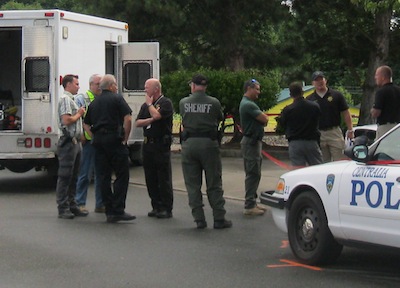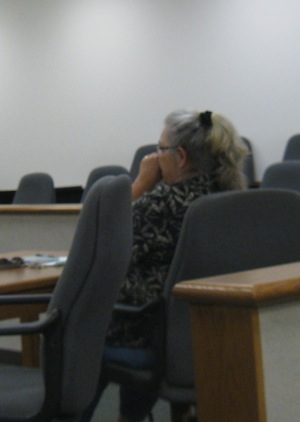By Sharyn L. Decker
Lewis County Sirens news reporter
The nearly three dozen page lawsuit filed against the city of Centralia regarding its stance on marijuana businesses talks about many issues, but boils down to one thing: making the city make a decision.
“What we really want is to light a fire under their butts, essentially,” the petitioner’s attorney Elizabeth Hallock said.
Her client, Perry Nelson, would-be proprietor of a retail store RIU420, has been selected by the Washington State Liquor Control Board to receive a license, but he can’t move forward because the city won’t take any applications, Hallock said.
She called Nelson a law abiding citizen caught in the middle of a political game.
A hearing date was set for next month in Lewis County Superior Court, but the city this past week gave notice it would like the case to be heard in federal court.
Nelson’s lawyer’s reaction:
“The federal question has to be decided for the country one way or another,” Hallock said. “What happens in Centralia not only affects the state, now the entire country is watching.”
The lawsuit filed on June 10 is the second in the state regarding local governments and their positions on recreational marijuana businesses. The Wenatchee lawsuit focuses on the federal law issue, Hallock said, and Centralia’s is more about state law.
Centralia’s City Attorney Shannon Murphy-Olson said like every other jurisdiction, Centralia has been studying the issue.
The city put a moratorium in place in November and renewed it in April. The hold on marijuana businesses runs into October, she said.
City planners created a zoning ordinance that was tentatively approved by the city council, which then turned around and re-enacted the moratorium, she said.
“If you look at the votes, the council is split.” Murphy-Olson said. “It’s a very difficult issue.”
Nelson filed the complaint asking a judge for for declaratory, injunctive and mandamus relief regarding what it calls the city’s prohibition.
The court documents say he is a resident of Lewis County, but also give a “Tulalup” address for him. Hallock said she doesn’t know much about her client, but noted he had also put in an application in Everett, so he may have been jurisdiction shopping.
He turned to Hallock, who practices in Clark and Klickitat counties, because he knew she was very dedicated to the issue, she said. She currently running for District Court judge in Klickitat.
She’s already been involved in one marijuana battle in Cowlitz County Superior Court, she said.
Voters passed Initiative 502 in 2012, legalizing possession of small amounts for those 21 and over, and the Washington State Liquor Control Board has been issuing licenses to grow, process and sell.
But her client can’t move forward.
“He has also spent countless hours preparing his operating plans, business plans, employee handbook, filling out applications, and paying licensing fees,” Hallock wrote in the complaint. “Without permission to operate or even do construction on his site from the city, all of his time, money, and efforts will have been and will continue to be wasted.”
The suit claims the city has mis-used moratorium law – a land use decision-making tool – saying the city’s rolling moratorium is essentially a permanent ban and a pretext for assuaging community opposition.
Nelson argues doing so based on the criminal illegality of marijuana at the federal level is wrong.
“The fear of federal enforcement of federal criminal law against a tightly-controlled, state-regulated recreational marijuana system is unfounded,” Hallock writes.
The lawyer goes into a great amount of detail about how the city’s ban encourages a black market, in contradiction to the Department of Justice directives which prefer a tightly regulated state controlled system.
Finally, she speaks of I-502 as exclusively a matter of state concern.
The state attorney general issued an opinion that local jurisdictions have implied power to zone out marijuana businesses, since that wasn’t addressed in I-502, Hallock said.
But they don’t, she claims.
It’s clear based what’s called a “pregnant silence,” according to Hallock.
“The law did not address the role of cities because it did not intend for cities to be able to ban it,” she said.
Murphy-Olson has filed a notice of appearance on behalf of the city. Olympia attorney Jeffrey Myers has filed a notice of association with the city.
Hallock and attorney Jerrie Paine have filed notices of appearance on behalf of Nelson.
Hallock said she’s charging non-profit rates, because the issue is that important to her.
“They can spend all the tax dollars they want,” Hallock said. “We think the best thing is the city should just adopt the ordinance that allows the state law to proceed.”
The city has not yet filed an answer to the lawsuit, something it had 20 days to do. Instead, on Thursday, it filed the notice the case is removed to U.S. District Court.
•••
Read the initial filing in the lawsuit here



 Join us
Join us